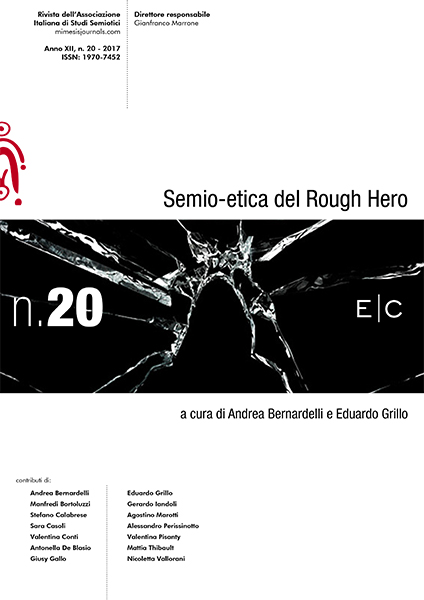The success of the rough hero, or evil as an aesthetic-cognitive principle
Abstract
The classic, unblemished hero is being replaced by the equally classic antagonist. Stories are becoming more and more villain stories. The phenomenon has given new strength, especially in the Anglo-Saxon context, to the question of the relationship between ethical values and aesthetic values of a work.A large number of studies are now dedicated to Rough Hero, expressions of already very diversified theoretical positions. The expression Rough Hero was proposed by Eaton (2010) with explicit reference to the well-known essay by Hume “Of the Standard of Taste” (1757), in which the Scottish philosopher establishes a close link between the ethical values expressed by a work, its aesthetic success and our moral sensitivity.



